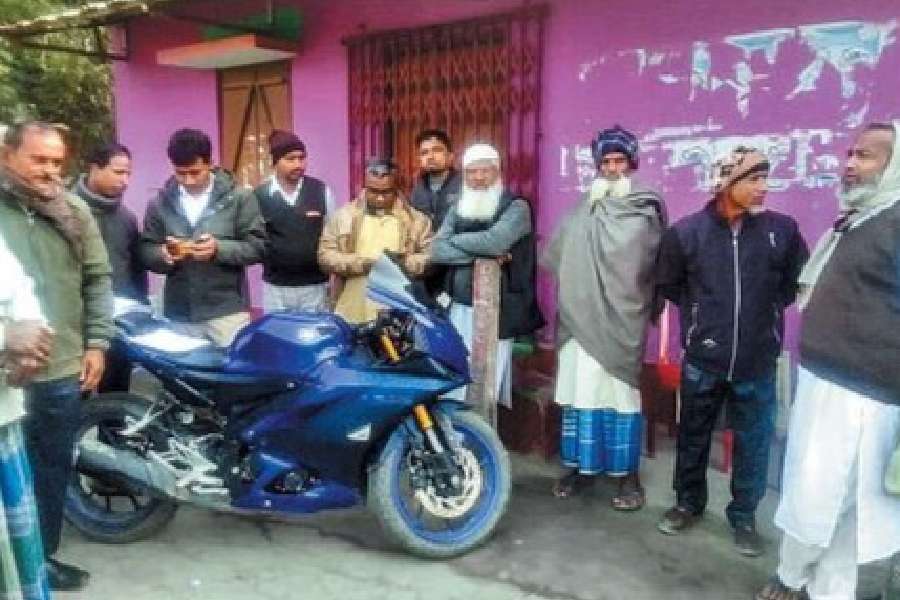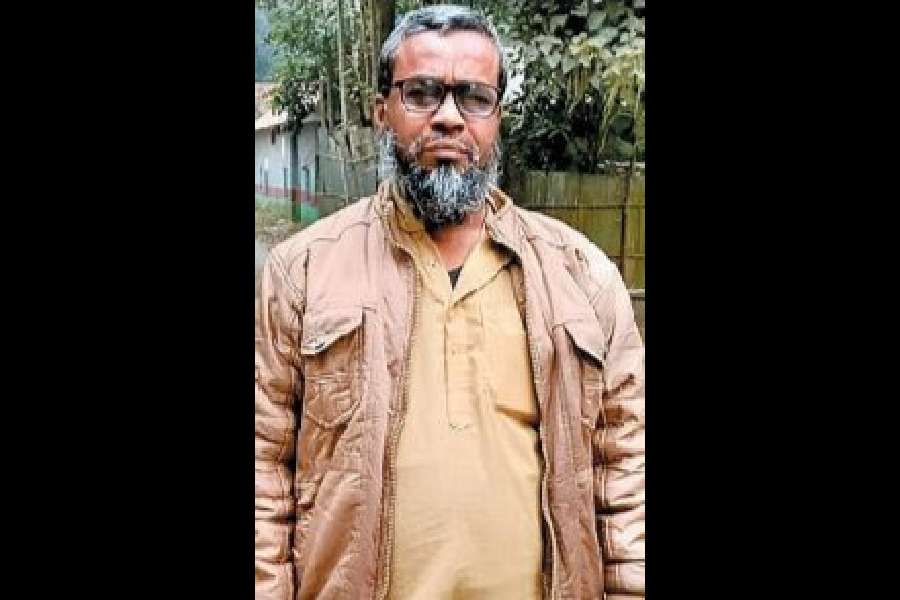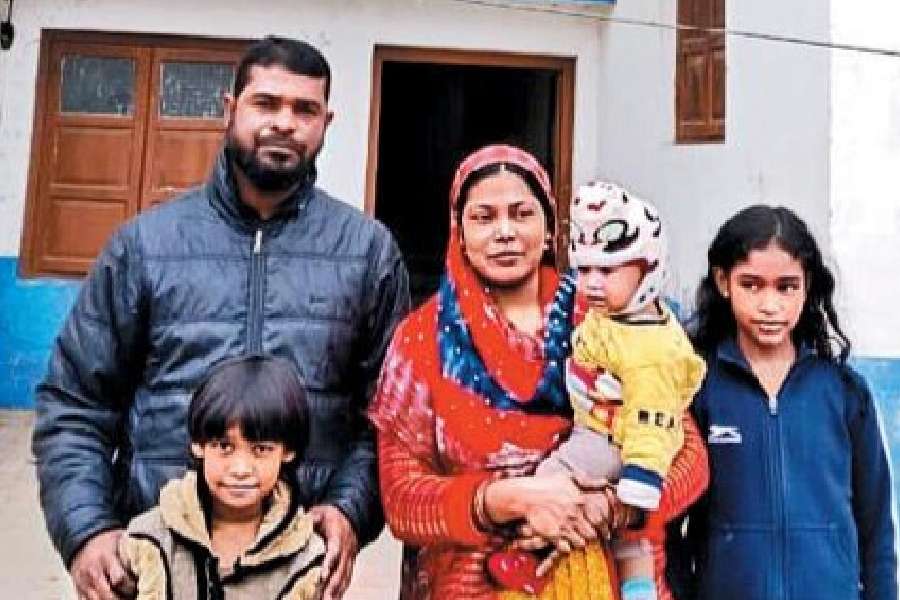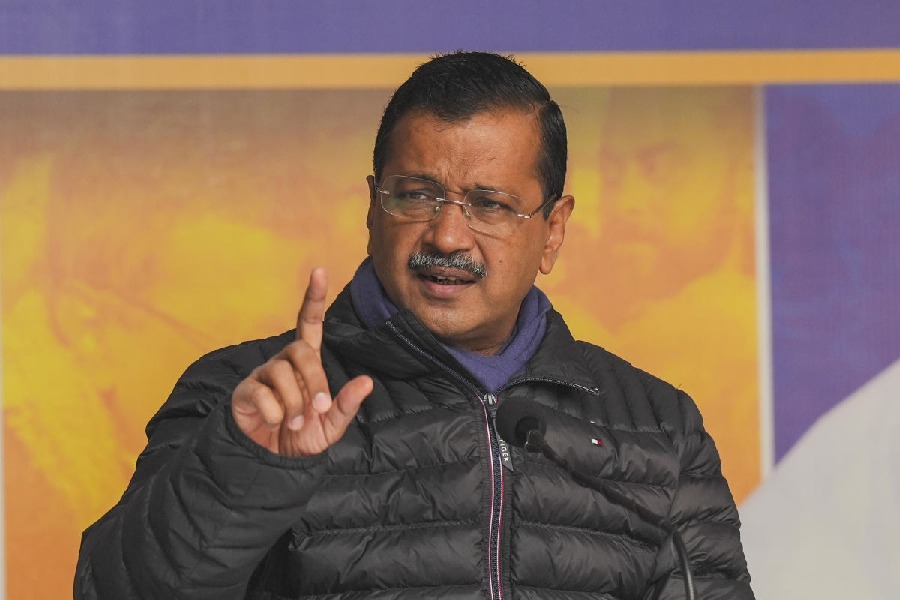Fifty-year-old Alam Sheikh, a resident of Shyamnagar village in Dinhata sub-division of Cooch Behar, was surprised to know late on Tuesday late evening that his wife, son-in-law and brother were at the Vasant Kunj police station in Delhi for hours, waiting for him to answer a phone call.
Sheikh, a scrap dealer, has stayed in the Bangalibusty-Madina Masjid area of Vasant Kunj for years with his family.
“Over the past few days, the Delhi police have launched a drive to identify Bangladeshi infiltrators staying in Delhi with forged Indian documents. They are checking our identities to confirm we are Indians and not infiltrators. In this process, many of us are facing harassment,” said Sheikh in his native village on Wednesday.
He said that a few days back, he came to Shyampur. On Tuesday, he went to Nepal to get his eyes checked.
“As I went to Nepal, there was no connectivity in my cell phone. During this time, the police tried to contact me. As they could not connect me, they called my family members over to the police station from morning till late evening. They were even told that I am a Bangladeshi and I have fled to evade arrest,” said Sheikh.
When he reached India on Tuesday night, he was flooded with phone calls. His wife Sayera Biwi, brother Shahidul Sheikh and son-in-law Azad Ali were frantically calling him.

Delhi police personnel in plainclothes at Dinhata on Wednesday check the documents of some residents who work in Delhi.
“I was surprised but spoke to them. Then, police officers spoke to me over the phone. Only then were allowed to leave the police station and go home. This is sheer harassment,” Sheikh added.
However, Sheikh has gathered the courage to leave for Delhi.
Abu Taher, also from Dinhata, has returned home with his wife and three daughters after a similar experience.
Working as a cleaner, he would stay in the Raja Puri in Delhi. Recently, a police team approached him and asked him to show his identity proof.
“I showed them my voter and Aadhaar cards. They demanded similar proofs of my father and grandfather. I don’t have those documents with me. In 2015, I came to India from an Indian enclave in Bangladesh. But the police in Delhi don't know about the exchange of enclaves between India and Bangladesh,” said Taher, 35.
Parul Begum, his wife, said they were apprehensive of subsequent police action in Delhi and decided to return to Dinhata.
“Two of our daughters used to study in the government schools in Delhi. We were worried if they would be able to continue their studies if we stayed back,” she said.

Alam Sheikh at his native village in Shyampur of Dinhata on Wednesday.
Last month, the deputy commissioner (headquarters) of the Municipal Corporation of Delhi issued an order, instructing verification of students studying in government schools to identify children of Bangladeshi infiltrators. The public health department was instructed to take all precautions before issuing certificates of birth.
Taher said he was one of those Indians who walked into the country from Bangladesh in 2015, following the signing of the land boundary agreement between India and Bangladesh which led to an exchange of the enclaves or Indian villages within Bangladesh mainland and vice-versa.
At that time, the Bangladeshis in India and Indians in Bangladesh of these hamlets were told they could take the citizenship of either country.
Along with 950 others, Taher had returned to India. They were provided with necessary documents by the administration and were rehabilitated by the central and state governments.
“I got the voter and aadhar cards and a flat in an apartment in 2015 and onwards. How can I show similar proofs of my father and grandfather?” said Taher, who took a train from Delhi and reached Cooch Behar on Monday.
“I have decided to stay here instead of working in Delhi. Many others from families like us stay in Delhi. Some of them have faced similar harassment,” he added.
The drive has also prompted political leaders to react. Former MP and veteran Congress leader Adhir Ranjan Choudhury sent a letter to Prime Minister Narendra Modi on December 24, requesting that school students and migrant workers not be harassed under the pretext of identifying Bangladeshi infiltrators.
The Delhi police, however, is continuing with the identification process. As a part of the drive, a team has reached Cooch Behar to verify details of some migrant workers from the district and stay in Delhi.
The team is visiting panchayat offices and villages to collect data to match the details provided by migrant workers, most of whom stay in rented homes in Delhi, said sources.
“They are here to conduct tenant verification. We are cooperating with them,” said a senior district police officer.
Udayan Guha, the north Bengal development minister and the TMC MLA of Dinhata, slammed the exercise.
“There is a perception in some places that a Bengali-speaking Muslim is a Bangladeshi. It is wrong. Thousands of Bengal's migrant workers from the minority community work in Delhi and other states. Many are harassed nowadays. This is unacceptable,” said Guha.
“It is nothing but an attempt to hide the failure of the Union home ministry. Had there been any infiltration from Bangladesh, the onus was with the BSF under the home ministry,” the minister added.










